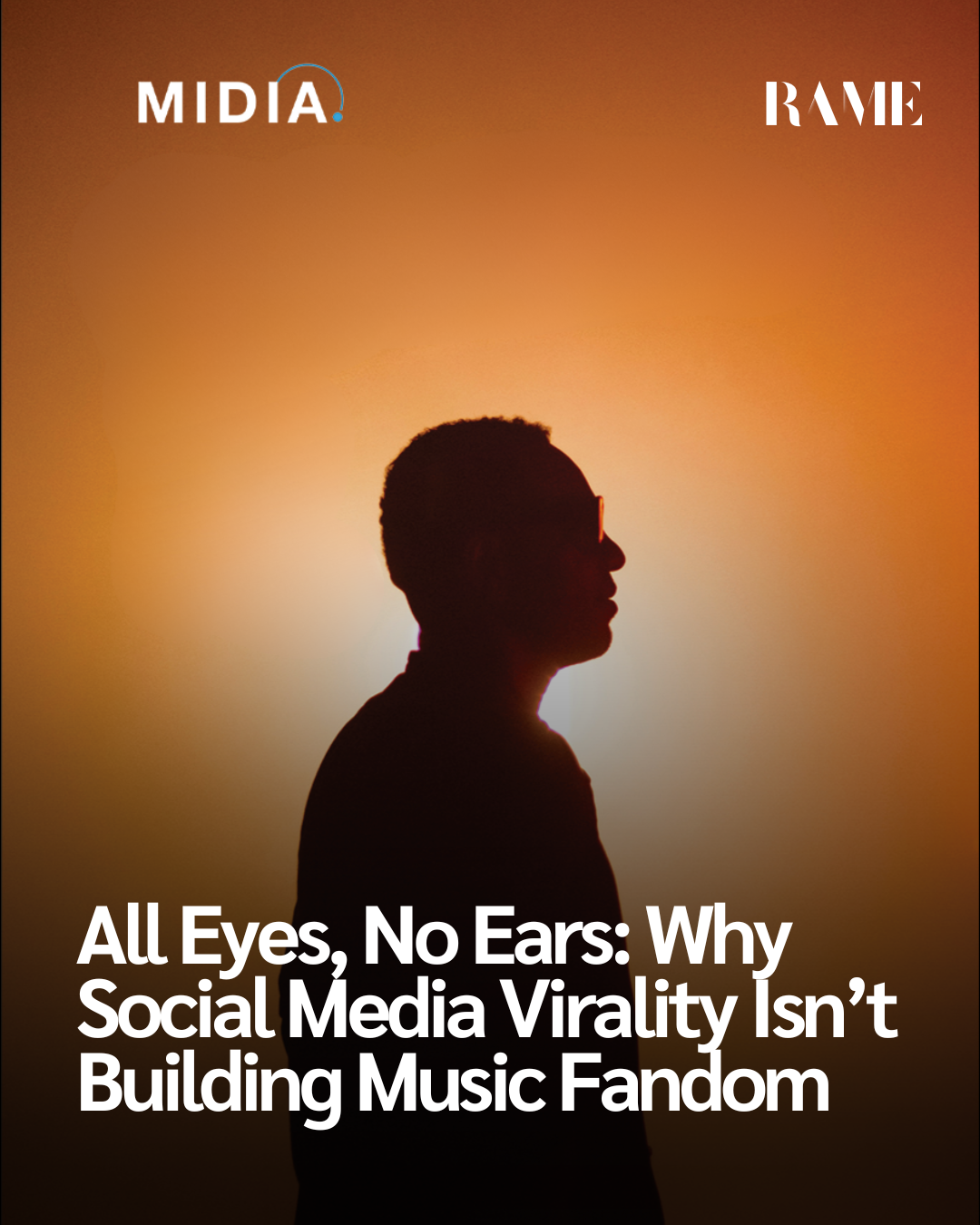A Viral Hit Doesn’t Always Equal a Fan
For years, TikTok, YouTube Shorts, and Instagram have been hailed as rocket fuel for new music discovery. A viral snippet can turn an unknown artist into an overnight sensation, with millions of streams and followers supposedly just a click away. But a new report from MIDiA Research suggests the story isn’t that simple.
According to MIDiA, virality on social platforms often fails to translate into meaningful fandom or even sustained streaming. The findings raise uncomfortable questions for artists, labels, and platforms betting on short-form video as the future of music discovery.
What the Data Actually Shows
MIDiA’s study surveyed more than 10,000 global consumers about their music-discovery habits. On the surface, the results look promising: 52% of respondents streamed music in the past month after hearing it on social media. But that also means 48% did not.
Tatiana Cirisano, VP of Music Strategy at MIDiA, explained the issue bluntly in a blog post:
“The more that music is pushed at social users, the less effective it becomes at driving streams, and building fandom the very outcomes the music industry is counting on for its next era of growth.”
The research highlights a troubling generational gap. Younger listeners (aged 16–24) are discovering music on social platforms more than any other group, but they’re also less likely than 25–34-year-olds to take the next step: saving the track, exploring the artist’s catalog, or becoming fans.

Platforms Compete With, Not Feed Into, Streaming
MIDiA’s report paints a picture of social platforms acting less like funnels to streaming services and more like substitutes for them. Many young listeners say they don’t feel the need to stream a track if they hear enough of it on TikTok or Instagram.
The numbers back this up. Less than a third of TikTok users have ever used its “Add to Music App” feature, which lets them save songs to their streaming libraries. And of the 20% of TikTok users who followed an artist after discovering them, only 26% listened to more of that artist’s music.
Cirisano calls this dynamic part of the “zero-sum attention economy,” where every second spent on a social feed is a second not spent listening to full songs or albums.
Pushback From the Platforms
Unsurprisingly, TikTok, Instagram, and YouTube have all promoted their roles in music discovery. TikTok says its Add to Music App feature has generated over a billion track saves since its global launch in 2024. Instagram has expanded its partnership with Spotify, embedding song links directly into stories. And YouTube Shorts, with its integration into YouTube Music, claims to drive both streams and subscribers.
Yet MIDiA’s data suggests that for many listeners, these platforms are not gateways but destinations. In fact, YouTube led the survey for new music discovery (52%), ahead of dedicated streaming services (40%) and TikTok (37%).
Why This Matters for the Music Industry
Behind the numbers lies a deeper tension: record labels have been voicing frustration over how little short-video platforms pay in royalties compared to traditional streaming services. Platforms, in turn, argue that their real value lies in music promotion.
But if social virality doesn’t reliably drive streams or lasting fandom that argument begins to falter. MIDiA’s findings land right as debates over licensing deals intensify, adding new urgency to the conversation.
A Narrow Window for Change
There is still hope. Despite these challenges, more than half of 16–24-year-olds say they’re becoming more interested in finding new music, and many expect that interest to grow. That leaves artists, labels, and platforms with a window of opportunity to reimagine discovery.
MIDiA’s recommendations call for sharper strategies: artists should prioritize making strong first impressions rather than chasing constant posts; labels should diversify beyond the major social apps; and platforms must decide whether they want to be primarily marketing tools or music-consumption hubs.
The stakes are high. If the next generation grows up consuming music in fragments without ever forming deeper connections, fandom as we know it could erode. For an industry built on passion, not just plays, that’s a future worth rethinking now.
The full MIDiA report, “All eyes, no ears | Why virality is not building fandom”, is now available for the public here.


